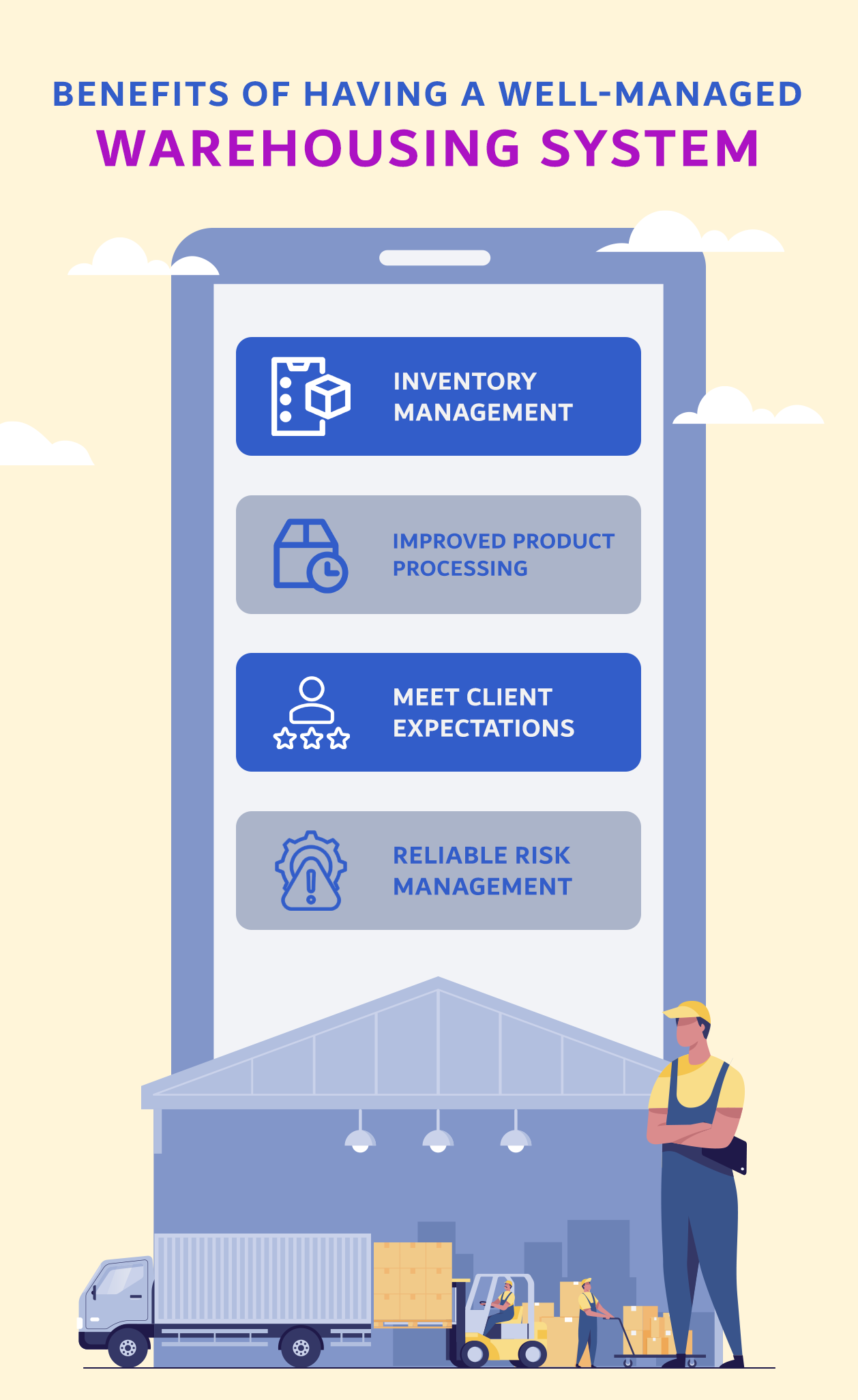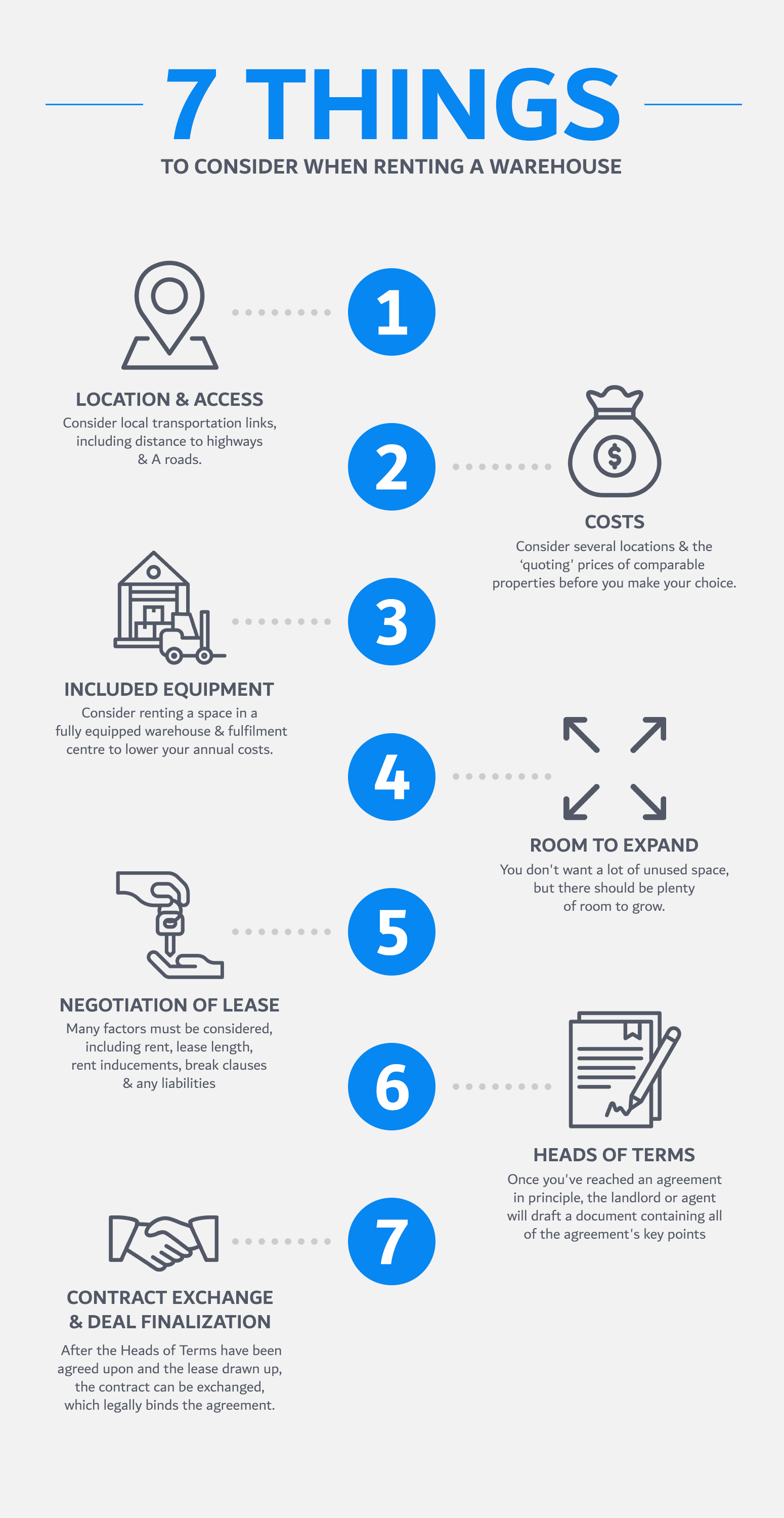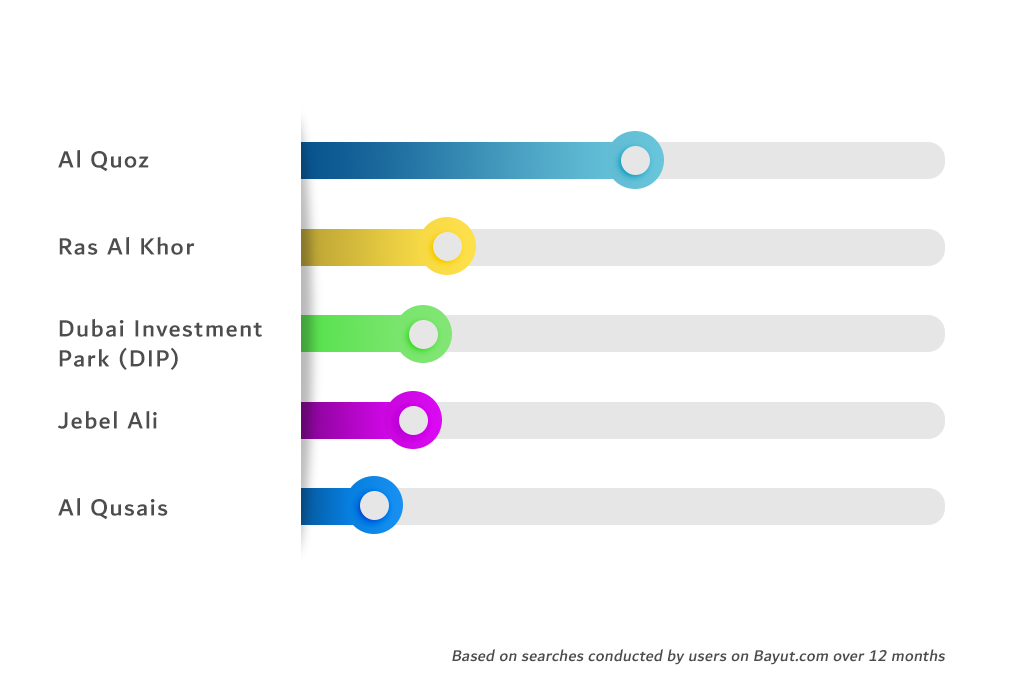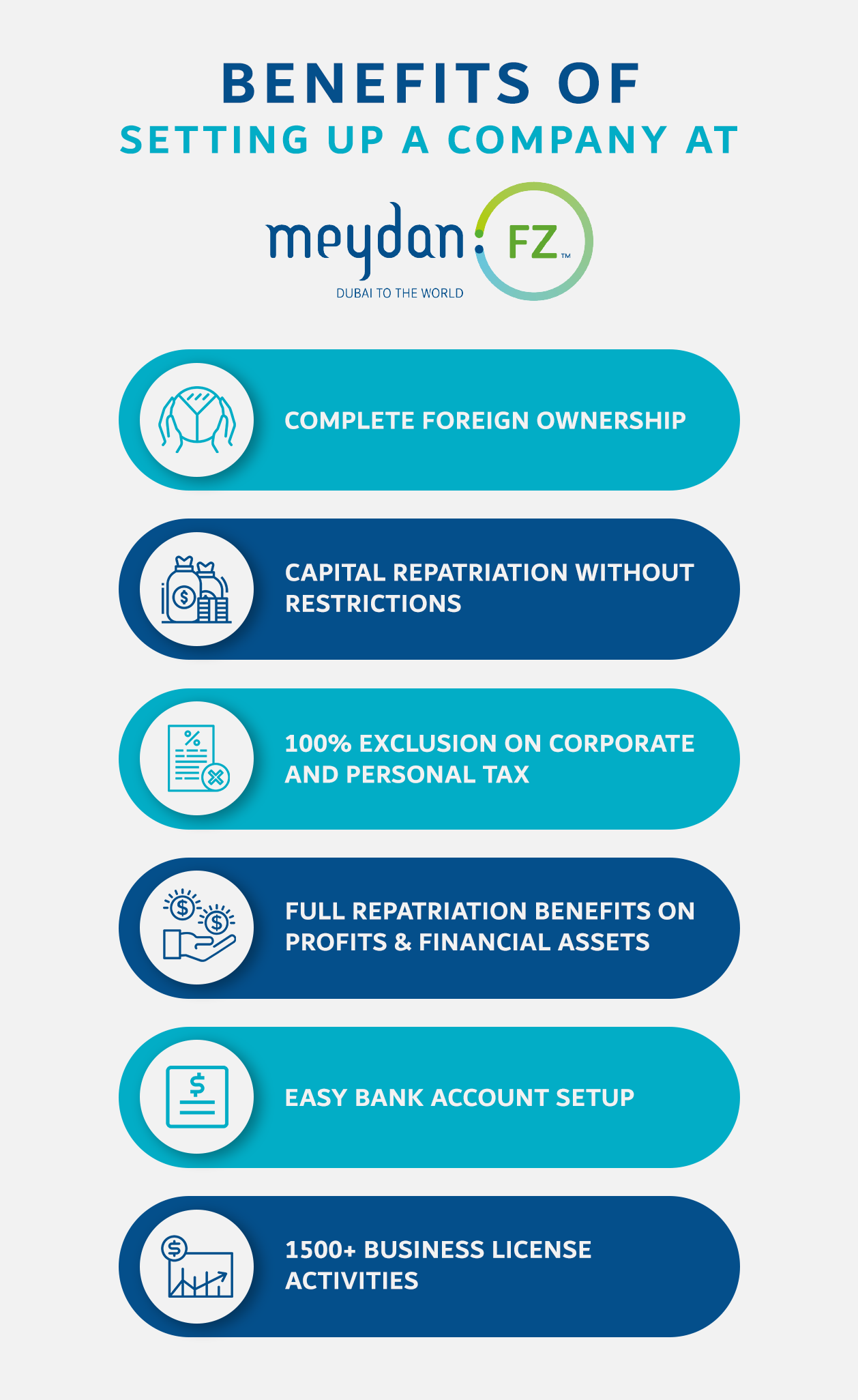If you are an already-established UAE entrepreneur with a thriving business in Meydan FZ, with products flying off the shelves, it may be time to consider renting warehouse space. Customer loyalty is a moving target, and it’s impossible to pin them down with a single trick. Keeping up with the ever-growing expectations of consumers is the only way to ensure that a business continues to thrive, and this includes order processing on a day-to-day basis.
If you have an eCommerce store or a general trading company, and you are receiving a steady stream of orders, you understand the hassle of running day-to-day operations. Renting a warehouse from a large logistics company such as Aramex and DHL helps you ensure that activities such as inventory tracking and order fulfilment proceed without a hitch.
Renting warehouse space helps you maximise distribution activities, and with benefits like scalability, flexibility, and inventory management options, you can focus on your core competencies. Renting a warehouse in Dubai represents a significant financial and logistical undertaking, so the best approach to exploring renting opportunities is to do so only after taking a number of critical factors into account.
This article covers everything you need to know about renting a warehouse in Dubai, including:
An Overview: Why Do You Need To Rent A Warehouse For Your Business?
Dubai’s geographic location and infrastructure, in particular, make it an ideal gateway for supply and distribution, and revenue is predicted to exceed USD 30 billion by 2035. The entrance of online shopping giants such as Amazon and Noon has resulted in customers’ demand for next-day or same-day delivery alternatives. This expansion of the eCommerce sector has raised the demand for storage and fulfilment centres, driving up the demand for warehouses.
Growing businesses of all sizes have discovered the value in outsourcing their warehousing, but even small companies trying to do more with less can benefit from warehousing services. After all, additional payroll, extra rented floor space, and even increased hours spent dealing with a website are all expenses you must consider.
Here are some of the benefits of having a well-managed warehousing system:
Inventory Management
Having all of your goods in one place gives you control over all of your current products.
Improved Product Processing
Warehouses are frequently outfitted with facilities for efficiently storing, packing, and moving orders.
Meet client expectations
Complete orders more quickly with agile customer service. It can also help you avoid mistakes by keeping your inventory organised and secure. Furthermore, warehoused products can be delivered faster than those stored locally, increasing labour productivity
Reliable Risk Management
Because you can stockpile products and always have a steady supply, warehousing helps with market price fluctuations.

Different Types Of Warehouses
Public
Government or government-affiliated bodies own public warehouses, which are made available to businesses for short-term storage. An excellent choice for small businesses and e-commerce startups with limited resources, they can be used for inventory management and shipping just like any other warehouse, but the difference is that businesses do not have to bear the costs of running the operation. The warehouse owner is responsible for the purchase and maintenance of any storage machinery or software.
Private
The owner of a private warehouse has complete control over the warehouse operations. They are owned and operated by large retail corporations, manufacturers, wholesalers, and distributors, and are also known as proprietary warehouses because they require capital investment at the outset but generate profits over time.
Many small businesses that want to establish a long-term strategic presence in a specific region can invest in private warehouses. Their allure stems from the consumer access they provide. Companies have complete control over them and closely monitor all processes.
Distribution Centres
A distribution centre is a central location where goods are stored and shipped. Inventory storage and shipping management are important aspects of these facilities. Because most businesses now offer reverse pickup, distribution centres are also responsible for logistics. Every distribution centre is divided into three sections: the loading dock, the storage area, and the shipping area. In some cases, processes such as order fulfilment and cross-docking are also handled.
Climate-controlled Warehouses
Climate-controlled warehouses are used to store perishable goods that require a specific temperature. They are essential in keeping temperature fluctuations in check to ensure the freshness of goods, from humidity-controlled environments to freezers.
Bonded Warehouses
These are primarily used to store imported goods before customs duties are levied. As a result, companies are not required to pay any customs charges until the product is released, which means importers are not required to pay duties until they find customers. Bonded warehouses are a cost-effective way for governments to ensure importers pay taxes, making them ideal for cross-border trade.
Smart Warehouses
Smart warehouses are those that use artificial intelligence (AI) in their storage and fulfilment processes. All functions in a smart warehouse, from packaging to transportation, are fully automated and require minimal human labour.
Seven Things To Consider When Renting A Warehouse
Transitioning from a home-based business to renting a warehouse to store your inventory or run your operation can be a daunting prospect. Before signing a new lease, it is critical to understand what is involved, and these are key points to consider when starting a search for a new warehouse.
-
Location and access
The majority of occupiers require vehicle access for deliveries and unloading when looking for a storage unit. The ease of this is frequently determined by location and access, which can be critical in ensuring a smooth operation. Consider local transportation links, including distance to highways and A roads.
-
Costs
Each location’s market rental level and expectation may differ. It is worthwhile to consider several locations and the ‘quoting’ prices of comparable properties within these. Once you’ve determined what’s available and how much it will cost to rent it, consider the condition of each, the age of the building, and whether there are any additional costs, such as service or estate fees.
-
Included equipment
When launching a new project or business, a well-equipped warehouse is ideal. If you want to expand beyond your current in-house stock management and distribution, it may be time to invest in your own warehouse equipment.
If you only need storage, picking, and packing for a short time, consider renting a space in a fully equipped warehouse and fulfilment centre. This will lower your annual costs while providing you with the expertise of a qualified logistics and fulfilment company. -
Room to expand
You don’t want a lot of unused space, but there should be plenty of room to grow. Consider the ceiling height – how much can you safely stack vertically? Storing items like this reduces the square meterage required for the same amount of stock. You also require enough space to move around the warehouse safely. This includes clearly defined receiving and distribution zones. Putting these areas too close together risks stock confusion and a build-up of pallets in high-traffic areas.
-
Negotiation of lease
Once you’ve found a suitable property, contact the landlord or property agent to express your interest and begin negotiating a lease to rent the property. When negotiating a commercial lease, many factors must be considered, including rent, lease length, rent inducements (which can include rent-free periods to allow the incoming occupier time to set up their operation), break clauses, and any liabilities that will fall on the tenant.
-
Heads of Terms
Once you’ve reached an agreement in principle, the landlord or agent will draft a document called the Heads of Terms, which contains all of the agreement’s key points. The UAE Courts consider heads of terms to be non-binding because they have no legal effect on either party; however, it contains all of the information required to draw up the lease, which is done by the appointed solicitors.
-
Exchange of contracts and completion of the deal
After the Heads of Terms have been agreed upon and the lease has been drawn up by the solicitors, the contract can be exchanged, at which point the agreement becomes legally binding. It is critical that you are completely satisfied with the agreement before you exchange, and if you are unsure about any aspects, seek advice from your solicitor and property agent before proceeding. The transaction is often completed shortly after the contracts are exchanged, and at this point, you pick up the keys and you’re ready to go!.

Locations In Dubai Where You Can Rent A Warehouse
When deciding to rent a warehouse in Dubai, it’s critical to understand your company’s needs and requirements. You must consider covered areas, average price per square foot, supply chain costs, material moving expenses, and whether you intend to expand your business operations soon. Your requirements will also be influenced by the need to install necessary machinery and the number of employees who will work in the warehouse.
Once you’ve decided on the above, you’ll need to pick a location to look for a commercial warehouse for rent in Dubai.
AL QUOZ
Unsurprisingly, Al Quoz is the most popular area for industrial and commercial warehouses for rent in Dubai. Being one of the city’s oldest and largest industrial zones, its popularity stems from its central location and easy access to major highways such as Sheikh Zayed Road.
Those looking for a warehouse for rent in Dubai Al Quoz will find a wide range of commercial and industrial options. The good news is that warehouses for rent in Dubai’s Al Quoz area come in a variety of sizes, but depending on the size of the warehouse you choose, prices can vary greatly.
RAS AL KHOR
Ras Al Khor, located between the Dubai-Al Ain Road and Sheikh Mohammed Bin Zayed Road, is the second most searched area in Dubai for rental warehouses.
Ras Al Khor, located in the city’s outskirts near Nad Al Sheba, is a popular location for both commercial and industrial warehouses for rent in Dubai. A well-maintained warehouse for rent in Dubai Ras al Khor is available in a variety of sizes to suit various business needs.
DUBAI INVESTMENT PARK (DIP)
Dubai Investment Park, a mixed-use development, ranks third among the best places to look for warehouses for rent in Dubai. As a massive industrial zone, DIP Dubai is ideal for companies providing storage services as well as companies that support light and heavy manufacturing.
The area’s proximity to Jebel Ali Port and Al Maktoum International Airport, as well as easy access to Sheikh Mohammed Bin Zayed Road (E311) and Emirates Road (E44), make it an ideal location for companies involved in storage and logistics.
JEBEL ALI
Jebel Ali is located near the port area of Mina Jebel Ali and has easy access to major highways such as Sheikh Zayed Road (E11) and Sheikh Mohammed Bin Zayed Road (E311).
It is also strategically located near Al Maktoum International Airport and the Expo 2020 site. The Jebel Ali Industrial Area is a good place to rent a warehouse in Dubai for a low price. While many of these warehouses are solely for storage, there are also commercial and light manufacturing units.
AL QUSAIS
Al Qusais’ industrial areas are located near the Dubai-Sharjah border, Al Nahda, and Muhaisnah. As a result, a warehouse for rent in Al Qusais Dubai is ideal for industries such as FMCG, electronics, automobile parts, food storage, and furniture storage.
There are numerous public transportation options nearby, including RTA public buses and Dubai Metro stations. These warehouses are also near the low-cost apartments for rent in Al Qusais’ residential areas. If your company is willing to accommodate its employees, this could be a significant deciding factor.

Types Of Businesses Needing Warehouses
Once you’ve defined your business activities and obtained a trade license in Dubai, it’s time to evaluate your storage options. Warehouse or industrial space is essential and, at times, a necessary impetus for businesses looking to streamline operations and stimulate growth. That being said, the need for a warehouse is heavily dependent on the type of business you run. .
Manufacturing
Manufacturing facilities are used by businesses to produce and then assemble products/goods. It can be heavy industries such as refineries, food processing, utilities, and so on, or it can be light industries. Regardless of the company or its requirements, manufacturing warehouses must be open, wide-spaced, and large enough to accommodate the large machines used to carry out the key operations of production.
To meet such demands, businesses make use of warehouse space and functionality. These commercial spaces have an infrastructure built in, including at least 10 feet of ceiling height and multiple loading docks for heavy vehicles and trucks. Manufacturing warehouses are also outfitted with high-capacity electric power, as well as exhaust and ventilation systems.
Storage and Shipping
For manufacturers and wholesale distributors, for example, those in the retail, pharmaceutical, and eCommerce sectors, adequate space for product storage, distribution, and shipping is critical. This is where storage and shipping warehouses come into play. These are also known as distribution centres and include office space, loading docks, and power supply. Some of these units, particularly those used for storage, include climate control features to protect perishable items.
Showrooms
Industries and businesses that need to keep their products on display, such as automobiles and electronic appliances, will frequently acquire a warehouse and convert it into a showroom. Construction companies and others that deal with displaying project models to clients are known to lease warehouses to get the open space that comes with it. It enables businesses to have adequate manufacturing and storage space while also allowing them to showcase their products.
Telecommunications
Due to the high power requirements, the telecommunications industry also makes use of warehouse spaces. This industry tends to prefer properties near power supplies and prime communications trunk lines because it requires electricity to power telecom switching equipment, computer servers, backup generators, and specialised HVAC.
General Trading
General trading businesses may need a warehouse for their daily activities such as preparing inventory for shipping, inventory tracking, and order fulfilment. Many retailers choose to outsource their warehouse logistics, which is a wise decision given that warehousing is more about inventory storage than transportation and distribution. They may also choose warehouses that larger logistics companies offer for rent, such as Aramex and DHL.
eCommerce
eCommerce businesses that have outgrown their garages are turning to the option of renting warehouses. The best eCommerce warehouses not only have the amenities and expertise to provide the digital fulfilment services required, but they also allow brands to store inventory in strategic locations that are physically close to their customer base for the quickest and most cost-effective delivery.
eCommerce warehousing is more than just a place to store inventory. It is also important to store products safely and securely, to track the in-stock status of the entire store inventory, and to keep track of the movement of items.
Why Set Up Your Business In Meydan Free Zone?
Meydan Free Zone, located in The Meydan Hotel, is 15 minutes from Dubai International Airport and has convenient access to Downtown Dubai and Sheikh Zayed Road.
Getting a premier location for a business address is one of the advantages of establishing your firm with Meydan Free Zone. There are other advantages to establishing a business in a free zone, such as the absence of use, sales, and income taxes. Our mission at Meydan Free Zone is to assist companies in establishing themselves and growing into profitable businesses. Our consultants will assist you with all areas of your Dubai business setup, allowing you to focus on delivering the best products and services while making use of Dubai’s storage and warehouse facilities.


